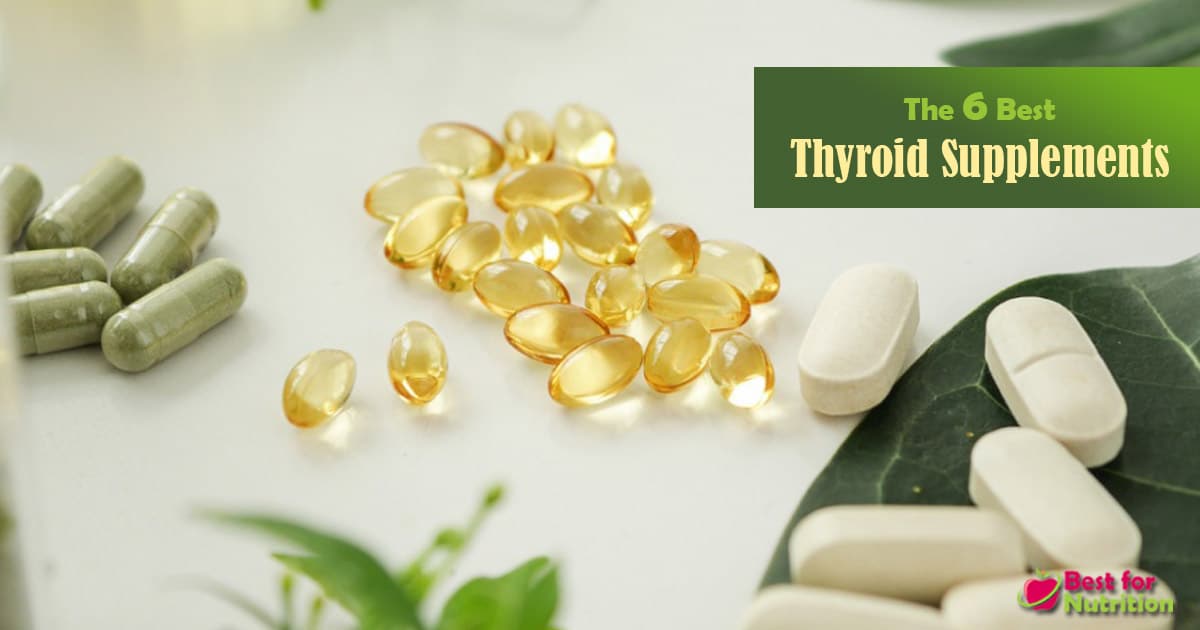The thyroid gland, a small butterfly-shaped organ located at the base of the neck, plays a crucial role in regulating metabolism, energy levels, and overall hormonal balance. Thyroid health is essential for the proper functioning of almost every system in the body. However, thyroid disorders, such as hypothyroidism (underactive thyroid) and hyperthyroidism (overactive thyroid), are increasingly common. These conditions can lead to a host of symptoms, including fatigue, weight gain, mood swings, and cognitive impairment.
In recent years, thyroid supplements have gained popularity as a means to support thyroid health, particularly for those suffering from hypothyroidism or looking to maintain optimal thyroid function. But what are thyroid supplements, and what benefits do they offer? This article delves into the science behind thyroid supplements, their potential benefits, and the best practices for their use.

Understanding Thyroid Function
Before exploring the benefits of thyroid supplements, it is important to understand how the thyroid gland functions. The thyroid produces hormones, primarily thyroxine (T4) and triiodothyronine (T3), which regulate metabolism, energy production, and other vital bodily functions. The thyroid-stimulating hormone (TSH), produced by the pituitary gland, controls the release of these hormones.
In hypothyroidism, the thyroid does not produce enough hormones, leading to a slowdown in metabolic processes. Symptoms of hypothyroidism include weight gain, fatigue, depression, and cold intolerance. On the other hand, hyperthyroidism occurs when the thyroid produces too much hormone, resulting in symptoms like weight loss, rapid heartbeat, and anxiety.
What Are Thyroid Supplements?
Thyroid supplements are dietary products designed to support thyroid function. They may contain a variety of ingredients, including vitamins, minerals, and herbal extracts, known to influence thyroid health. Some common ingredients in thyroid supplements include:
- Iodine: Essential for the production of thyroid hormones.
- Selenium: A mineral that plays a critical role in converting T4 into the active T3 hormone.
- Zinc: Supports the synthesis and function of thyroid hormones.
- Vitamin D: Low levels of vitamin D have been linked to thyroid dysfunction.
- Ashwagandha: An adaptogenic herb that may help balance thyroid hormone levels.
- L-tyrosine: An amino acid that is a precursor to the production of thyroid hormones.
These supplements are often marketed to those with hypothyroidism, although they can be used by anyone looking to support their thyroid health.
The Benefits of Thyroid Supplements
- Improved Energy Levels
One of the most common symptoms of hypothyroidism is fatigue. Thyroid hormones are responsible for regulating the body’s metabolism, and when hormone levels are low, energy production is compromised. Thyroid supplements that contain iodine, selenium, and L-tyrosine can help boost the production of thyroid hormones, potentially leading to increased energy levels and reduced fatigue.
Studies have shown that iodine and selenium are particularly important in supporting thyroid function. Iodine is a key component of thyroid hormones, while selenium is involved in the conversion of T4 to the more active T3. Supplementing with these nutrients may help improve energy levels in individuals with suboptimal thyroid function .
- Enhanced Metabolism and Weight Management
Thyroid hormones are closely linked to metabolism and weight regulation. Individuals with hypothyroidism often experience unexplained weight gain due to a slowed metabolism. By supporting thyroid hormone production, thyroid supplements can help enhance metabolic rate and promote healthy weight management.
A study published in the Journal of Clinical Endocrinology & Metabolism found that selenium supplementation in individuals with mild thyroid dysfunction resulted in improved thyroid function and a modest reduction in body weight. Additionally, ashwagandha, an adaptogenic herb commonly found in thyroid supplements, has been shown to improve thyroid hormone levels and support metabolic health.
- Mood Stabilization and Cognitive Function
Thyroid hormones play a crucial role in brain health, influencing mood, cognition, and overall mental well-being. Hypothyroidism is often associated with symptoms of depression, anxiety, and cognitive impairment. By supporting thyroid hormone production, thyroid supplements may help stabilize mood and improve cognitive function.
Research indicates that low levels of selenium and vitamin D are linked to an increased risk of depression and cognitive decline in individuals with thyroid dysfunction. Supplementing with these nutrients may help alleviate mood disturbances and support cognitive health.
- Support for Immune Function
The thyroid gland is closely linked to the immune system. Autoimmune thyroid disorders, such as Hashimoto’s thyroiditis, are among the most common causes of hypothyroidism. In such cases, the immune system mistakenly attacks the thyroid gland, leading to inflammation and reduced hormone production.
Certain nutrients, such as selenium and zinc, play a vital role in immune function and may help reduce inflammation associated with autoimmune thyroid disorders. A study found that selenium supplementation reduced thyroid antibodies and improved thyroid function in individuals with Hashimoto’s thyroiditis. Zinc, another key mineral in thyroid supplements, supports immune health and may help protect against autoimmune conditions.
- Improved Hair, Skin, and Nail Health
Thyroid dysfunction can have a significant impact on hair, skin, and nail health. Hypothyroidism, in particular, is often associated with hair loss, dry skin, and brittle nails. These symptoms are primarily due to reduced thyroid hormone levels, which affect the growth and repair of tissues.
Thyroid supplements that contain biotin, zinc, and vitamins A and E can support the health of hair, skin, and nails. Biotin, a B-vitamin, is particularly known for its role in promoting hair growth and strength. Zinc also plays a role in tissue repair and may help improve the condition of skin and nails.
- Potential Cardiovascular Benefits
Thyroid hormones are essential for cardiovascular health, influencing heart rate, blood pressure, and cholesterol levels. Hypothyroidism is often associated with an increased risk of cardiovascular disease due to elevated cholesterol levels and changes in heart function.
By supporting thyroid hormone production, thyroid supplements may help promote cardiovascular health. Studies have shown that selenium and zinc supplementation can have a positive impact on cholesterol levels and overall heart health. Additionally, omega-3 fatty acids, often included in thyroid supplements, are known for their heart-protective effects.
Best Practices for Using Thyroid Supplements
While thyroid supplements can offer numerous benefits, it is important to use them appropriately. Here are some best practices for using thyroid supplements:
- Consult with a Healthcare Provider: Before starting any supplement regimen, it is essential to consult with a healthcare provider, especially if you have been diagnosed with a thyroid disorder. A healthcare provider can help determine the appropriate dosage and ensure that the supplements do not interfere with any medications you may be taking.
- Choose High-Quality Supplements: Not all thyroid supplements are created equal. It is important to choose high-quality supplements from reputable brands that provide clear information about their ingredients and manufacturing processes. Look for supplements that have been third-party tested for purity and potency.
- Monitor Thyroid Function: If you are taking thyroid supplements to support thyroid health, it is important to monitor your thyroid function regularly. This can be done through blood tests that measure TSH, T4, and T3 levels. Monitoring your thyroid function will help you and your healthcare provider determine whether the supplements are having the desired effect.
- Consider Potential Interactions: Some thyroid supplements may interact with medications or other supplements. For example, high doses of iodine can potentially interfere with thyroid function and may exacerbate certain thyroid conditions. It is important to be aware of potential interactions and to use supplements as directed.
- Focus on a Balanced Diet: While supplements can support thyroid health, they should not replace a balanced diet. A diet rich in fruits, vegetables, lean proteins, and whole grains provides the essential nutrients needed for thyroid function. Additionally, foods such as seaweed (rich in iodine), Brazil nuts (rich in selenium), and fatty fish (rich in omega-3 fatty acids) can be particularly beneficial for thyroid health.
Conclusion
Thyroid supplements offer a range of potential benefits, from improved energy levels and metabolism to enhanced mood and immune function. For individuals with thyroid dysfunction or those looking to support their thyroid health, these supplements can be a valuable addition to a comprehensive health regimen. However, it is important to approach thyroid supplementation with caution, consulting with a healthcare provider and choosing high-quality products. By taking a balanced and informed approach, you can support your thyroid health and overall well-being.
References
- Iodine and Thyroid Health: National Institutes of Health (NIH) – Office of Dietary Supplements. Link
- Selenium’s Role in Thyroid Function: Journal of Clinical Endocrinology & Metabolism.
- Vitamin D and Thyroid Disorders: Thyroid Journal – Mary Ann Liebert, Inc.
- Zinc and Immune Function: Advances in Nutrition – Oxford Academic.
- Ashwagandha and Thyroid Function: Journal of Ayurveda and Integrative Medicine.
- Omega-3 Fatty Acids and Cardiovascular Health: American Heart Association (AHA).
